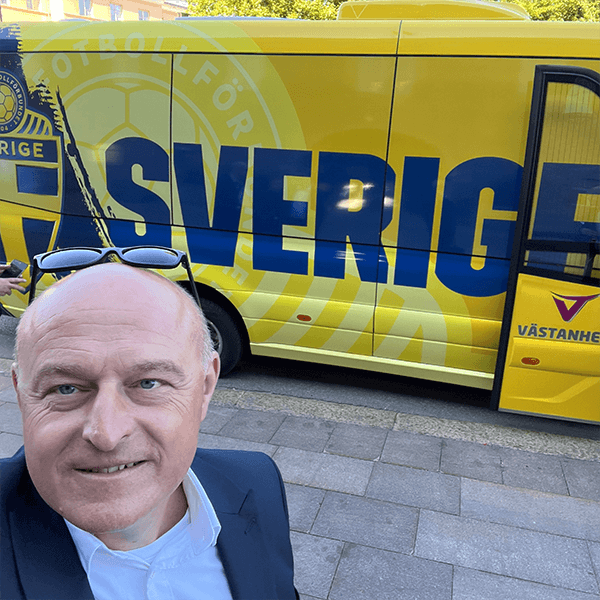Meetings with representatives of the Swedish innovation ecosystem, the world’s best transfer-oriented incubator, universities, the most active startup investors, a science park and Czech scientists who are successfully working in Sweden. The trip took place from 5 to 7 September and was organised by the Embassy of the Czech Republic in Stockholm in cooperation with 13 representatives of Czech innovation and transfer centres and with the support of the Ministry of Industry and Trade of the Czech Republic. Martin Smekal, Head of the Centre for Technology Transfer of the CAS (CeTTAV), participated in the event. Upon his return, he answered several questions.
The organizers called this Swedish mission inspiring, how was it for you?
This work trip was definitely inspiring for me. I had the opportunity to see how they approach innovation development in Sweden from an academic background, at different stages from the initial idea to quite advanced business and investment activities.
What is the envy of Sweden from the perspective of the innovation community?
Mainly, perhaps, that their system of support and related funding has been in place for a long time, stable and transparent for the target groups.
Can we talk about the so-called Swedish model?
The Swedish model, as presented to us, is really simple. Their philosophy is that they support the whole innovation journey, the so-called ‘Innovation Journey’. This implies that they realise that a one-off subsidy for some part of this journey is not enough. And that is a really big difference from the current approach in the Czech Republic. What we face here is that the system is very fragmented and does not cover the whole journey. We should certainly take inspiration from the Swedish approach in the Czech Republic.
What is applicable to the practice in the CAS for transfer?
It was valuable for knowledge and technology transfer in the CAS that we had the opportunity to learn the details of all the steps they presented. Our Swedish colleagues showed us and directly shared their professional know-how, which we immediately started to use in our CeTTAV team. For me, it was useful to have the opportunity to learn more about, for example, the target-based approach to success evaluation.
What is applicable to the practice in the CAS for transfer?
It was valuable for knowledge and technology transfer in the CAS that we had the opportunity to learn the details of all the steps they presented. Our Swedish colleagues showed us and directly shared their professional know-how, which we immediately started to use in our CeTTAV team. For me, it was useful to have the opportunity to learn more about, for example, the target-based approach to success evaluation.




